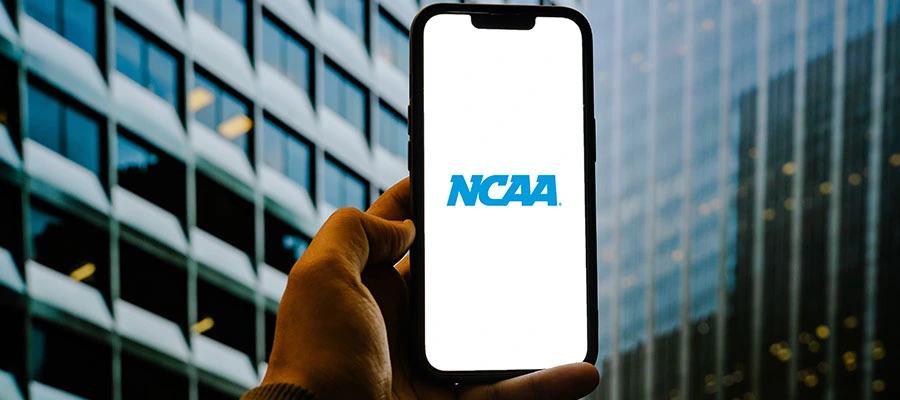The Rise of a Phenomenon
Bo Jackson was not just an exceptional athlete; he was a cultural phenomenon, a once-in-a-generation talent who astoundingly excelled at both football and baseball during his collegiate career at Auburn University. Yet, despite his extraordinary accomplishments, you won't find Jackson’s senior-year baseball records in the Auburn books. They’ve been erased, casualties of an NCAA compliance fiasco.

The Fateful Flight: From Physical Exam to NCAA Nightmare
In 1986, Jackson was on top of the collegiate sports world, fresh from winning the Heisman Trophy—college football’s highest honor. Simultaneously, he dominated on Auburn’s baseball diamond, batting over .400 and showcasing prodigious power. His dual-sport success attracted widespread attention, including from the Tampa Bay Buccaneers, who held the number one NFL draft pick.
Buccaneers owner Hugh Culverhouse, eager to select Jackson, arranged a visit to Tampa Bay for a physical examination. To accommodate Jackson, Culverhouse sent his private jet, assuring Jackson that the visit had been fully vetted and cleared with NCAA compliance officials and explicitly promising not to discuss professional contracts or financial terms.
However, the supposedly straightforward visit quickly spiraled out of control. The NCAA and SEC swiftly ruled the use of Culverhouse’s private jet as an improper benefit under strict amateurism regulations. Despite immediate attempts by Jackson and Auburn to rectify the issue—offering to repay the cost of the flight—the damage had been done. Both governing bodies refused the offer. Jackson was promptly declared ineligible to play collegiate baseball any further. Auburn faced an agonizing choice: ignore the ruling and risk severe sanctions, including reversed victories and disqualification from postseason tournaments, or accept the NCAA’s harsh judgment.
The Fallout: Career Decisions and Reputational Damage
Feeling betrayed by Culverhouse and the Buccaneers organization, Jackson made a very public vow never to play for Tampa Bay. Despite his clear objections, Tampa Bay drafted him first overall anyway. Jackson famously appeared at the NFL draft, politely accepting the jersey and smiling for the cameras—but then promptly walked away, refusing to negotiate or play for Tampa.
This incident cast a long shadow over Jackson’s burgeoning sports career. When he turned to Major League Baseball, the uncertainty surrounding his true commitment to baseball created confusion and concern among MLB teams. Many doubted Jackson’s motives, suspecting he might leverage baseball merely as a bargaining chip with the NFL. This skepticism severely impacted his draft position. Instead of going in the early rounds, which his talent clearly warranted, Jackson dropped all the way to the fourth round, significantly reducing his initial earning potential and causing lasting financial repercussions.
NCAA Enforcement and Legal Implications
Jackson’s ordeal illustrates the arbitrary and often unfair enforcement mechanisms that have historically characterized NCAA regulations. At the time, athletes such as Danny Ainge could seamlessly balance professional baseball careers with amateur collegiate basketball success, yet Jackson was harshly penalized simply for taking a flight for a draft physical. Such selective enforcement contributed significantly to the current shift toward more equitable regulations.
NIL Reform: The Modern Shift Toward Athlete Empowerment
Today, the NCAA’s rigid and often capricious regulatory landscape has begun to transform, driven by the emergence of NIL (Name, Image, and Likeness) agreements and revenue-sharing initiatives. These reforms aren't merely beneficial; they're crucial. NIL agreements empower collegiate athletes to:
- Earn income independently, ensuring financial security.
- Safeguard themselves from the types of arbitrary decisions Jackson faced.
- Navigate their athletic careers with clarity and autonomy.
Legal Guidance in the NIL Era
To effectively leverage these opportunities, athletes require informed, specialized guidance. Understanding contracts, compliance requirements, and the broader implications of NIL agreements demands skilled legal counsel familiar with both collegiate athletics and intellectual property rights.
At Hopkins, we are committed to providing expert support and legal protection tailored specifically for college athletes navigating this complex new NIL landscape. Our dedicated practice area ensures athletes secure their rights, maximize their financial opportunities, and protect their long-term interests, preventing the kind of pitfalls and uncertainties exemplified by Jackson’s experience.
Bo Jackson’s experience isn't just a cautionary tale—it’s a powerful reminder of the importance of skilled advocacy and informed decision-making for collegiate athletes today.
Frequently Asked Questions
- Improper benefits can include transportation, lodging, meals, gifts, cash, services, or special arrangements from boosters, agents, professional teams, or other prohibited sources. Whether a benefit is impermissible depends on the sport’s bylaws, the recipient, and context; schools should seek advance guidance from compliance offices.
- No. Restitution may be considered in a reinstatement request, but repayment alone does not cure a violation or guarantee eligibility. The NCAA’s eligibility staff/committee evaluates facts, intent, competitive advantage, and institutional control before ruling on reinstatement.
- NIL compensation is generally permitted if it is not pay-for-play or a recruiting inducement, complies with applicable state law and institutional policy, is properly disclosed, and avoids misuse of school marks or third-party IP without a license. Deals should be arm’s-length and reflect fair market value for actual services.
- Obtain written clearance from compliance, avoid accepting travel or other benefits, document all communications, and understand sport-specific rules on agents, tryouts, and drafts. Where permitted, use advisors within regulatory limits and keep receipts and emails for audit trails.
- Counsel can coordinate reinstatement submissions, negotiate with institutions and conferences, review and structure NIL contracts, evaluate state-law protections, and manage confidentiality and reputation concerns. Legal action may provide remedies, but it does not automatically override NCAA eligibility determinations.
Protect Your Athletic Future with Legal Counsel
Navigating NCAA compliance and NIL regulations requires legal strategy. If you’re a student-athlete or advisor managing eligibility, NIL deals, or compliance reviews, seek professional legal support early. The right counsel ensures contracts, endorsements, and benefits remain compliant while protecting your eligibility, reputation, and long-term career. Contact us today.

